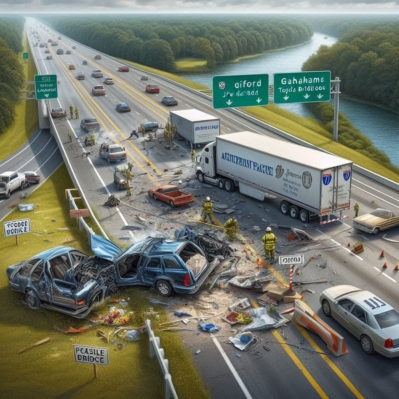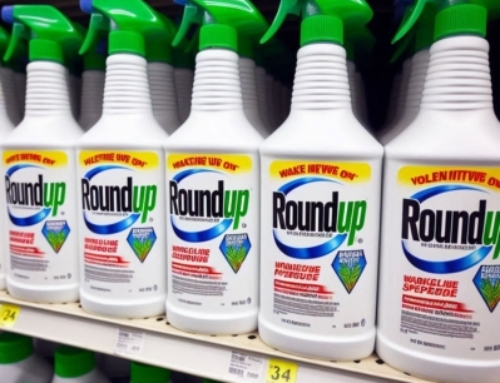Kevin Graham v. Keshia Seecharan, et al.
- Court: Florida State, Duval County, Circuit Court
- Case Number:2022-CA-000412
- Filed: January 25, 2022
- Judges: James H. Daniel
- Case Type: Auto Negligence Case
- Cause: Negligence | Wrongful death
Parties Involved
- Plaintiff(s):Kevin Graham
- Counsel for Plaintiff: Frank Fratello, Jr
- Experts for Plaintiff(s): Mark S. Frisk, M.D. | John Roberts | Farhad Booeshaghi, Ph.D., P.E.
- Defendant(s): Keshia Seecharan | Kyle Gifford | Owners Insurance Company
- Counsel for Defendants: Hayley LeaAnn Crosby| Michael Lee Glass | Shylie Armon Bannon
- Experts for Defendant(s): Shane M. Remy , P.E. | Abraham Rogozinski, M.D. | LisaH. Anderson,MS, CRC, CVE, CLCP, IPEC,ABVE/D | Marc F. Glickstein, M.D.
Verdict Information
- Verdict Date: May 24, 2024
- Total damages awarded to Plaintiff: $2,201,228.16
- For past medical expenses: $1,250,228.16
- For future medical expenses: $461,000
- For past loss earnings: $125,000
- For future loss earnings: $265,000
- For past pain and suffering: $60,000
- For future pain and suffering: $40,000
About the Case
Cause
On November 6, 2021, a fatal car crash occurred on US-17 near its intersection with JP Hall Road in Clay County, Florida. The plaintiff, Kevin Graham, was driving northbound in the left lane of a two-lane section when Kyle Gifford, operating a 2011 Toyota Corolla owned by Keshia Seecharan, failed to exercise due care. Gifford, who had Seecharan’s permission to drive the vehicle, was traveling southbound in the right lane of the two southbound lanes when he failed to yield the right-of-way and collided with a vehicle driven by Teqla Bridges.
The force of the impact caused Bridges’ car to veer out of control, cross the median, and crash directly into Graham’s oncoming vehicle. In response to this devastating incident, Graham filed a multi-count lawsuit.
Count I focused on the negligence of Kyle Gifford. Graham asserted that Gifford had a duty to operate his vehicle safely, avoid crashing into other vehicles, and refrain from distractions while driving. By crashing into Bridges’ vehicle and becoming distracted, Gifford breached these duties, leading to permanent injuries and the tragic loss of Teqla Bridges’ life.
Count II invoked Florida’s Dangerous Instrumentality Doctrine, a legal principle that holds vehicle owners vicariously liable for the negligence of those they allow to drive their cars. Under this doctrine, Keshia Seecharan, as the owner of the Toyota Corolla, was deemed liable for Gifford’s negligent actions that resulted in the fatal car crash. This vicarious liability extended to all damages, including medical expenses and pain and suffering.
In Count III, Graham turned to his own insurance provider, Owners Insurance Company. Graham had an automobile insurance policy (number 52-087-392-00) in full force on the day of the accident, paid for by his employer. This policy included uninsured/underinsured motorist (UM) coverage with a non-stacking limit of $1,000,000 per person.
Injury
The fatal car crash, caused by Kyle Gifford’s negligence and resulting in Teqla Bridges’ tragic death, left Graham with permanent bodily harm. These injuries inflicted persistent pain and suffering, transforming Graham’s daily life into a struggle with physical discomfort and emotional distress. The accident also caused disability, impairing or limiting Graham’s physical and mental abilities, robbing him of independence and the capacity to perform routine tasks. Additionally, the crash resulted in disfigurement, permanently altering Graham’s appearance and potentially affecting his self-esteem and social interactions.
Beyond the physical trauma, Graham endured significant mental anguish, grappling with anxiety, emotional pain, and the psychological aftermath of the traumatic event. The accident also exacerbated a pre-existing health condition, adding another layer of complication to Graham’s recovery and long-term health. These injuries, both physical and emotional, cast a long shadow over Graham’s life, necessitating ongoing medical care, impacting his career, and altering his future in ways both seen and unseen.
Damages
Jury Verdict
The jury unanimously found that Kyle Gifford’s negligence was a legal cause of loss, injury, and damage to Kevin Graham. They absolved Graham of any negligence contributing to his own injuries. Interestingly, the jury also determined that a third party, Michelor Justin, bore some responsibility for Graham’s damages. The jury apportioned 80% of the negligence to Kyle Gifford and 20% to Michelor Justin, with Kevin Graham bearing no fault.
In assessing damages, the jury awarded substantial compensation to Graham. For past medical expenses, they granted $1,250,228.16, and for future medical costs, they allocated $461,000. They also recognized Graham’s lost earnings, awarding $125,000 for past losses and $265,000 for future earnings impairment. Additionally, they granted $60,000 for past non-economic damages and $40,000 for future suffering.
Court Documents:







Leave A Comment